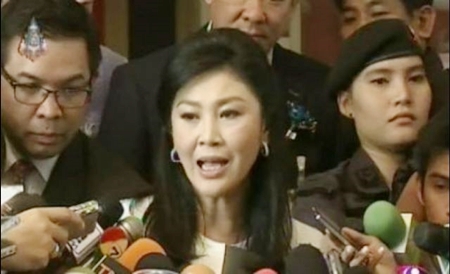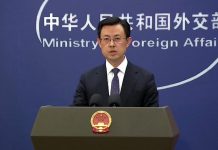BANGKOK, Oct 22 – Prime Minister Yingluck Shinawatra today called on proponents and opponents of the Amnesty Bill to dialogue with talks so that Thailand can move forward.
She said the bill was proposed by Pheu Thai Samut Prakan MP, Vorachai Hema, not the government, and insisted that it was not a finance-related legislation.

The opposition bloc said earlier that it was a financial bill and the government would have to step down if the bill was rejected by Parliament.
The bill was passed in the first reading by the House of Representatives and is currently under deliberation by the House scrutiny committee.
The scrutiny committee has changed some details of the bill – a move which exasperated the opposition Democrat Party and civil society networks in Thai society.
Several anti-Amnesty Bill groups have vowed to stage mass rallies next month to protest against the bill.
They said the scrutinised version of the bill would favour ousted prime minister Thaksin Shinawatra in regaining his confiscated assets, seized after a Supreme Court ruling.
Ms Yingluck said there are several more steps before the bill would pass into law.
She said the security authorities would closely monitor the political situation to maintain public order and ensure that protester movements would not affect the convenience of the public, safety and traffic.
Democrat leader Abhisit Vejjajiva said he disagreed with both the original Amnesty Bill and the scrutinised version, and stood firm that offenders in criminal or lese majeste cases should not be pardoned.
If ex-premier Thaksin is cleared of all charges, he would definitely exercise his right to seek the restoration of his seized assets, said Mr Abhisit.
Chavanond Indarakomalyasut, Democrat spokesman, said his party would not accept pardons for people from all groups and all colours as proposed by Pheu Thai MP Prayuth Siripanich.
He said the terms of the imposition of the Amnesty Bill were vague and could possibly be nullified by the Constitution Court.




